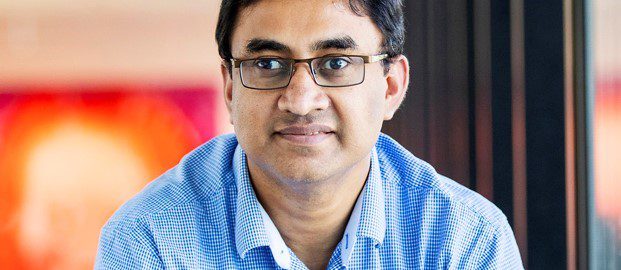The world still struggles about a convincing strategy to handle the #coronavirus crisis. The developed world was affected first, but the forthcoming consequences for the developing countries may be much worse. Some insights from an interview with development economist Asad Islam of Monash University, Australia.
Some core messages of the interview:
- The impact of COVID-19 is likely to be more severe in developing countries than in developed countries.
- A temporary lockdown makes it possible to alert people that this is a serious health issue and everybody needs to protect themselves as much as possible.
- Most developing countries have the capacity to provide three meals a day for its poorest population.
- Developing countries need to allow their people to leave the lockdown earlier.
- Our proposal for India suggested a broad-based transfer system, targeting more on poor people and increase the global fiscal stimulus substantially.
- The pandemic is of more serious concern than initially thought.
- Issues previously considered to be local ones are now recognized to be of global relevance and have to be addressed by global collaborations.
GLO Fellow Asad Islam is a Professor at the Department of Economics, and Director of the Centre for Development Economics and Sustainability (CDES) at the Faculty of Business and Economics at Monash University, Australia.
Interview
GLO: What is different with COVID-19 in a developing country than in a developed country?
Asad Islam: In developing countries, we see poorer health infrastructure such as a severe lack of hospital beds, intensive care units are not equipped with proper facilities for COVID-19 patients, missing trained nurses and doctors, lack of awareness among masses of people. Thus, the impact of COVID-19 is likely to be more severe in developing countries than in developed countries.
GLO: Is there no alternative to a complete lockdown of society and economy?
Asad Islam: The temporary lockdown in a developing country is a necessary evil to raise awareness about COVID-19. Social distancing won’t work without it. People have now almost stopped going to temple, mosque, church or social gatherings. This won’t happen without a lockdown! Lockdown needs to be temporary with gradual withdrawal (because of concerns for the poor) while making sure that the people try to maintain social distance (1.5 meter), and wear masks. A temporary lockdown makes it possible to alert people that this is a serious health issue and everybody needs to protect themselves as much as possible.
GLO: But unlike in developed countries, it seems very difficult for the government to financially support people. How can they survive?
Asad Islam: Most developing countries have the capacity to provide safety nets (e.g., providing three meals a day) for its poorest segments of the population. The problem is not lack of resources, but absence of mechanisms to reach the food to these poor people. The food distribution system could be made fairer even within this short period of time and most poor people can be brought under a direct transfer system. Of course, the pressure on the government is huge for maintaining this over a longer period. However, supporting its needy 30-40 percent of the population for 3-6 months using a public food distribution system is not an impossible job. International organizations such as the World Bank and the Asian Development Bank can also play a supportive role in ensuring this, particularly in countries where we see a serious lack of resources.
GLO: Lockdowns need to end at some time and one needs good statistics. What to do?
Asad Islam: We need to flatten the curve in developing countries, which means one needs to wait when the number of cases is rising rapidly. While the developed country can wait till there is no new case, in developing countries that would be very hard to achieve considering the economic hardship of poor people. One option is to allow the people to start working (for temporary period) who test negative, and younger people (age 20-50) if they do not have any major pre-existing condition.
GLO: With some colleagues you have recently proposed a strategy for India (see for a media report and the full memorandum). What is the message?
Asad Islam: Our main point was to have a broad-based transfer system, targeting more on poor people to enable them to cope with hardship during the lockdown, and increase the fiscal stimulus in manifold to address the economic woes of people.
GLO: Have economists underestimated the dangers of this pandemic?
Asad Islam: I think there were not enough data to begin with, and as it now stands both the number of infection cases and deaths were not reported accurately. As economists rely mostly on numbers there was more support for herd immunity in the beginning as the death rate was very low. However, as more accurate data are coming and we observe higher rate of deaths/infections we have now started to realize that the pandemic is of more serious concern on both health and economic grounds than initially thought.
GLO: How will the coronavirus change development economics?
Asad Islam: The world should now realize more that there are many issues we should not ignore, issues which sometimes we perceive to be the problem of a country or region only. Many problems including poverty and climate change need to be tackled globally and developed countries have more obligations to address them. The global public health issue will remain a serious concern in the coming years, and the problems of developing countries need to be better understood to address these challenges.
*************
With Asad Islam spoke Klaus F. Zimmermann, GLO President on April 18, 2020.
Further activities and reports of the GLO Research Cluster on the coronavirus.
Ends;






